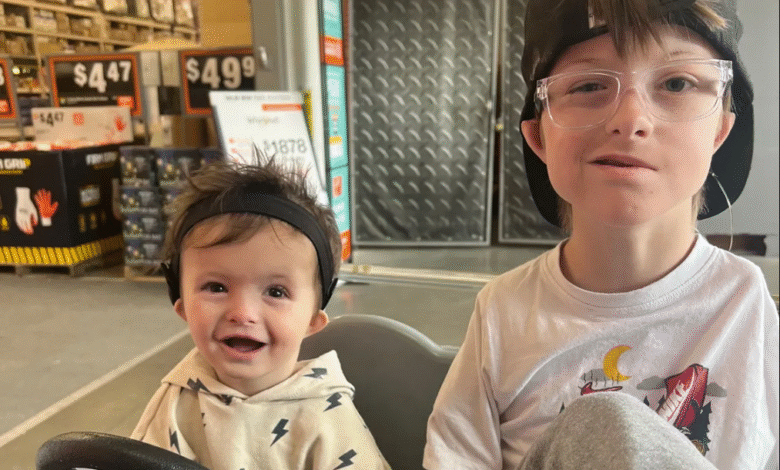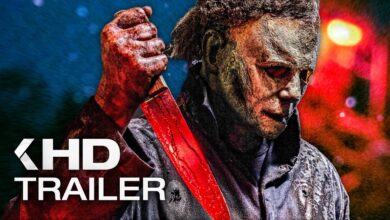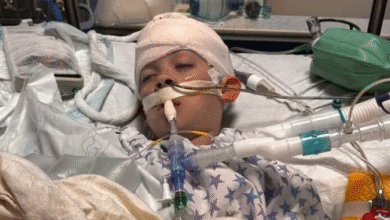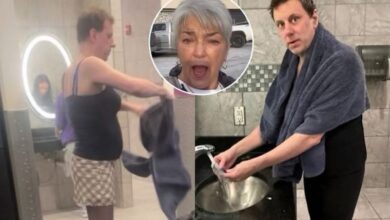She Was Told to Terminate Her Pregnancy. Now She’s Raising 2 Sons Who Are Inspiring Millions

Lacrimo-Auriculo-Dento-Digital syndrome (LADD syndrome) is a rare genetic disorder characterized by a range of anomalies affecting the lacrimal system.
From the moment Madison Sisson was born, life presented challenges.
She arrived with only four fingers on her left hand and, unbeknownst to doctors, a disorder that wouldn’t be diagnosed until she was 9 months old. The condition — Lacrimo-Auriculo-Dento-Digital syndrome (LADD syndrome) — is so rare that most people have never heard of it. It is a rare genetic disorder characterized by a range of anomalies affecting the lacrimal system
Despite the diagnosis, Madison never saw herself as different. At 19, she met her future husband, Kane, and they lived in Seattle, where they dreamed of building a life and starting a family. But those dreams came with difficult questions. Genetic testing revealed a 50% chance their children could inherit LADD.
Still, the couple moved forward with hope. At 21, Madison became pregnant with their first child, a boy. But what should have been a joyful milestone quickly turned to fear: during their first ultrasound, doctors couldn’t find the baby’s left arm.
“I remember we went home and we cried,” Madison, now 34, tells PEOPLE exclusively. “It was a terrifying pregnancy. I didn’t share it with anyone — not out of shame, but for my own emotional protection. I needed to hold on to some normalcy.”
:max_bytes(150000):strip_icc():focal(630x0:632x2):format(webp)/sisson-family-1-053025-1521e2fc064d4169b67b94fd39edd801.jpg)
The Sisson family.
Genetic testing during the pregnancy showed no signs of LADD. Even so, doctors raised concerns about the baby’s quality of life due to his missing limb. Until 24 weeks, some even discussed termination. But Madison held firm in her belief that her son was healthy and whole.
When Ryker was born, he was missing his left arm and was later diagnosed with hearing loss. But the biggest moment came after birth: postnatal genetic testing confirmed he had inherited LADD.
“It was really shocking to us,” Madison says. “We thought we had beaten the odds.”
Even knowing the challenges ahead, Madison and Kane still felt their family wasn’t complete. In early 2020, they began preparing for in vitro fertilization (IVF) to reduce the risk of passing on LADD. Then the COVID-19 pandemic hit, and everything was put on hold.
Once clinics reopened, they resumed the IVF process — until life took another unexpected turn: Madison became pregnant naturally.
“Honestly, we were terrified,” she says. “After everything with Ryker, we didn’t know what to expect.”
Their second son, Rhett, was born with differences in both arms and was completely deaf. Two months after his birth, the weight of it all hit Madison during a quiet drive home with Rhett in the backseat.
“I called Kane, sobbing on the freeway,” she remembers. “And he said, ‘Whatever is meant to be has already been written. It is what it is. We just keep moving forward.’ ”
:max_bytes(150000):strip_icc():focal(413x0:415x2):format(webp)/sisson-family-3-053025-a97d9648df5f4259a9031c7378567f0c.jpg)
That mindset has carried them ever since. Today, Madison and Kane, also 34, focus on empowering their boys — celebrating what they can do rather than dwelling on what they can’t. Over the years, they’ve watched Ryker, now 11, learn to use his feet for everything from writing and eating to playing video games.
His growing confidence inspired the family to begin sharing their journey on social media, where they’ve built a following of nearly 46,000 people.
“He loves showing people what he can do,” Madison says. “He’s really the one who started all this. Just this morning, as I dropped him off at school, he said, ‘Mom, maybe tonight we can take a video of me playing video games so I can show everyone how I do it.’ ”
One recent video of Ryker figuring out how to open a car door on his own drew more than 10 million views and nearly 9,000 comments. Another, showing Ryker and Rhett, 3, helping Madison make burgers with their feet, garnered 8.6 million views and 10,000 comments.
“Some people think using your feet is gross or dirty,” Madison says. “But what they don’t realize is that Ryker washes his feet constantly. The first thing he does when we get home is wash them. Before dinner, he washes his feet. Just like someone else would wash their hands — he washes his feet. Honestly, they’re probably cleaner than most people’s hands.”
“So many of the comments we get are negative — people saying Ryker is going to struggle his whole life,” she adds. “But that’s exactly why we share the adaptive tools and show how he does things. We want to change the way people view disability. It’s not about living a horrible life or struggling forever.”
@madisonsisson22 Ryk has been struggling with the car door so tonight dad found the solution! #adaptations #limbdeficiency #onearm #adapting #boymom #sahm #dayinthelife #fyp
She adds. “Some of Ryker’s favorite comments are things like, ‘You’re the coolest kid on the Internet,’ or, ‘You’re the coolest kid on this app.’ He loves those — they’ve been really special. People say his superpower is using his feet, which is so cute. And there are so many others who say things like, ‘God bless your family,’ or, ‘We love your videos.’ It’s overwhelming in the best way. Just so many people saying how much they love our kids — it means the world to us.”
“The whole point is to raise our kids to be as independent as possible — to give them the confidence and tools they need to one day leave the nest, build a family, and live a full life on their own,” she adds. “I don’t want them to rely on me or anyone else. I want them to feel capable, just like their peers.”





